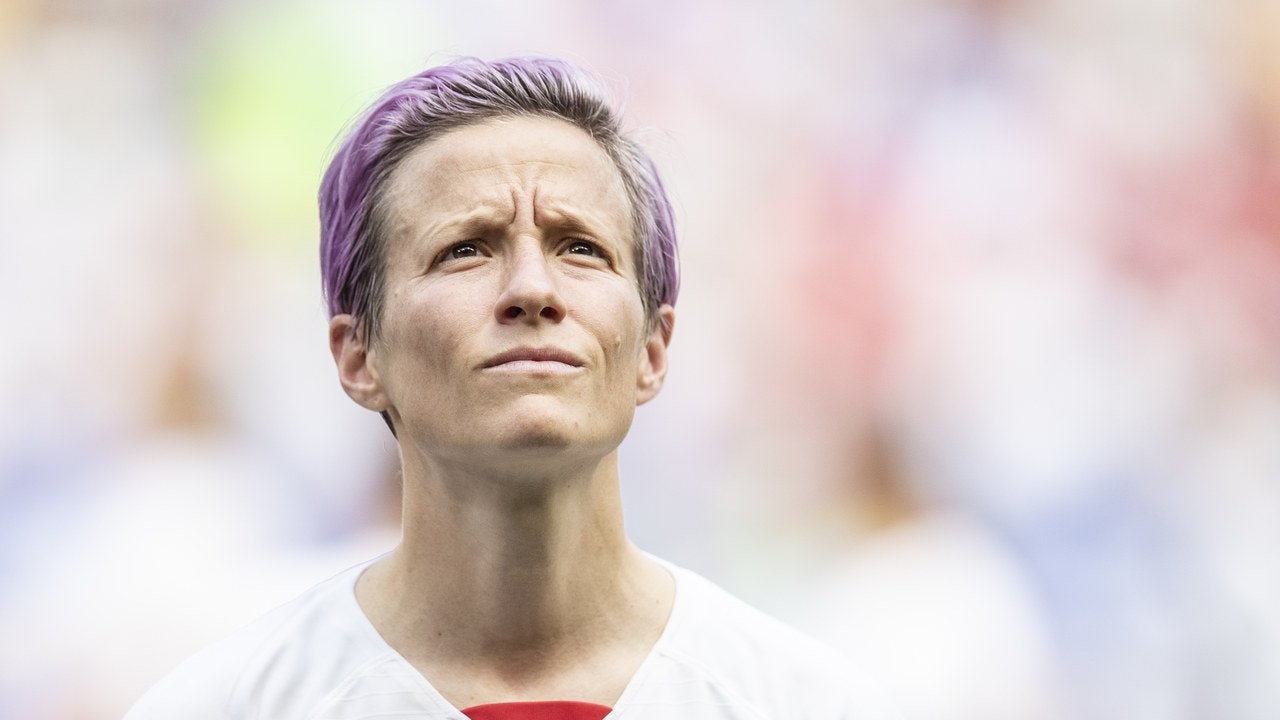U.S. Soccer Argued Biological Differences Justify Paying the Women's Team Less, According to Court Filings

Last summer when the U.S. Women’s National Soccer Team won the World Cup (their fourth) in France, the stadium erupted into chants of “Equal pay!” Despite the women’s team’s total dominance, they’re paid less than their male counterparts, an issue that came to a head in March 2019 when the players sued U.S. Soccer for gender discrimination.
Back in August 2019, we learned talks between the two parties had broken down—and a new court filing this week gives us insight, perhaps, into why.
Per Buzzfeed, the documents show one of the arguments against equal pay being made by U.S. Soccer lawyers is that, under the Equal Pay Act, “The job of a [men’s national team player] carries more responsibility within U.S. Soccer than the job of a [women’s national team] player.” Excuse me?!?
You remember the USWNT, of course, as the winners of last year’s World Cup which turned stars like Megan Rapinoe, Alex Morgan, and Ashlyn Harris into household names for people who’d never even watched a game before then. Unless you’re a big soccer fan, you’re probably less familiar with the men’s team who have had, well, a lot less success in recent years as the women’s team dominates.
But, wait, the court documents get worse. U.S. Soccer also argued that indisputable “science” and biological differences prove that women should be paid less because the men’s team “requires a higher level of skill.” We’re not sure anyone has argued that there aren’t biological differences between men and women—just that those shouldn’t matter when determining how much to pay someone for the same job.
Buzzfeed also accessed court documents which showed U.S. Soccer’s questioning of some of the women’s teams stars. “Do you think that the team could be competitive against the senior men’s national team?” one asked Carli Lloyd. “I’m not sure,” she said. “Shall we fight it out to see who wins and then we get paid more?” Another asked Morgan, “Do you think it requires more skill to play for the U.S. Men’s National Team than the U.S. Women’s National Team?” She replied, “No,” Morgan replied. “It’s a different skill.”
It’s quite infuriating to see the national governing body of a sport be so dismissive (and regressive) in defense of their antiquated position that women deserve to be paid less for a job where they have proved they are quite literally the best in the world. But it’s not unsurprising, especially to any woman who has been faced with a similar situation in her own job where she has to be better and fight harder for the same rights and money automatically afforded a man.
We have no doubt the USWNT will keep pushing for what’s right—and that’s just one of the many reasons to celebrate them.



